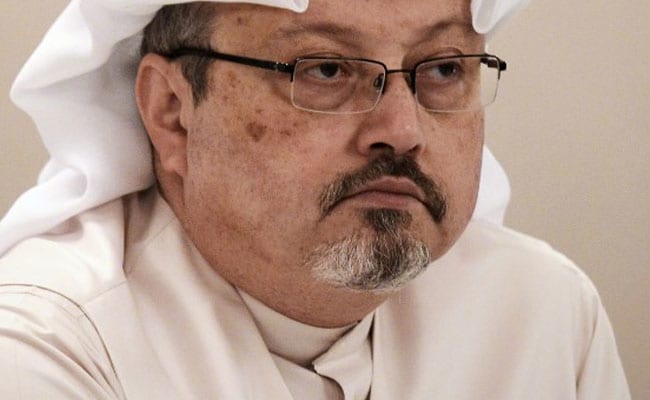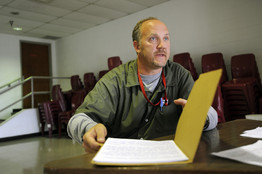6 November 2018
Jamal Khashoggi (pictured) is dead. He was killed by his own people in a foreign land. It was because he criticised the rulers as a Washington Post journalist. Jamal Khashoggi is a martyr. His death has achieved more than that he could have done by wring for the rest of his life, if he lived. His body has not been found so far. According to Turkish newspapers his body was cut into pieces or dissolved in acid. A Saudi doctor named Salah Muhammed al-Tubaigy is the alleged killer.
The Saudi government gave multiple, implausible accounts about his death and finally accepted that he was murdered by security staff. Fifteen Saudi intelligence team flew into Istanbul and left on the same day the journalist was last seen. That they were able to return on the same day shows that this was a carefully planned premediated murder. Riyadh has detained 18 suspects. Who are the other three?
Many believe the Saudi Crown Prince Mohammed bin Salman, also known as MbS, was behind the killing. Saudi is putting the blame on individuals who exceeded their authority and killed Khashoggi during the interrogation. The disappearance of Khashoggi will no doubt tarnish the image of Crown Prince and his ambitious “Vision 2030” plan to diversify the economy of Saudi Arabia. Khashoggi’s murder came to light because it happened in a foreign country. There may be many such incidents happening in Saudi Arabia without becoming a public knowledge. There were stories of violence and torture during the detention of royals in the last year’s crackdown on corruption. But many of these stories are probably not true. None of the royals released have told of any such torture during their incarceration. It is also possible that they did not speak out because of fear for MbS.
In a damage control measure, on 11 October the King dispatched his most trusted aide, Prince Khaled al-Faisal, governor of Mecca, to Istanbul to try to defuse the crisis. Prince Khaled is believed to be a close friend of Turkish President Erdogan. During Prince Khaled’s visit, Turkey and Saudi Arabia agreed to form a joint working group to investigate Mr Khashoggi’s disappearance. The King subsequently ordered the Saudi public prosecutor to open an inquiry based on its findings. King Salman ordered the dismissal of five officials, including Saud al-Qahtani, a royal court adviser seen as the right-hand man to Prince Mohammed, and deputy intelligence chief Ahmed Asiri, Saudi state media reported on Saturday. This shows that King is asserting himself on major policy issues while leaving all policy administration to the crown prince. The king also ordered a restructuring of the intelligence service, under the supervision of Prince Mohammed, suggesting the prince still retained wide-ranging authority.
According to The New York Times, Prince Ahmad bin Abdulaziz, the only surviving full brother of Saudi Arabia’s King Salman, flew back to Riyadh from London on 30 October. Prince Ahmad was one of the three members on the allegiance council who did not vote for the crown prince. He has been critical of the crown prince over the war in Yemen. He would have agreed to return to Riyadh only after receiving security assurances from the UK and United States. His return comes almost a month after Khashoggi’s disappearance. New Straits Times reported.
Saudi Arabia freed Prince Khaled bin Talal who was arrested for criticising a crackdown on corruption. He was probably released to diffuse intense pressure on crown prince over the Khashoggi affair and to shore up support from within the royal family. He was kept in detention for a year. There was no official explanation for his arrest or his release.
Prince Ahmed may think that greater respect will be paid to senior figures like himself in the future and include him in the inner circle taking policy decisions. But this is not going to happen. Because after his crackdown on corruption last year Prince Mohamed has limited the movements of several royals deemed as political rivals, including Mohammed bin Nayef, whom he replaced as crown prince.
Jamal Khashoggi was killed in Saudi embassy in Turkey. Turkish President Recep Tayyip Erdogan has been making a lot of noise but has not been forthcoming with all the facts he has. He is only trying to threaten Saudi Arabia with soft blackmailing to extract concessions from Saudi Arabia to ease pressure on his struggling economy. He will not do anything that would jeopardize Turkey’s good relationship with Saudi Arabia.
Turkey itself has an appalling record of violence against journalists. The Committee to Protect Journalists (CPJ) has named Turkey as the worst jailer of journalists in the world. The murder of Turkish-Armenian journalist Hrant Dink in Istanbul in January 2007 is a clear example of Turkey’s violence against journalists. There was also an assassination attempt on Can Dündar, formerly Editor-in-chief of Cumhuriyet newspaper. Dündar now lives in exile (in Germany) but at constant risk from the outreach of Erdogan’s long arm.
In the recent past MbS made several rash moves that affected his popularity. His invasion of Yemen in 2015, created one of the worst humanitarian crises in the world. Because of his pressure on Houthi-held port of Hodeidah, according to the UN’s World Food Programme, some 12 million Yemenis face the threat of famine. His abduction and compelling the resignation of the Lebanese prime minister when he was visiting the kingdom turned out to be short-lived. Last year MBS also launched the blockade of neighbouring gas-rich Qatar. His detention of his kinsmen and extortion of $100bn from them has made him unpopular among the ruling clan. He has also not revealed what was done with the $100bn taken from the royals.
The US and Canada have lucrative defence contracts will not stop from doing business with Saudi Arabia. Similarly, all oil companies will also conduct business as usual with the kingdom















